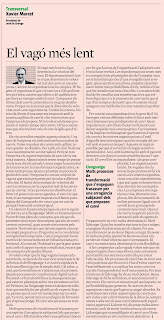
Andrew Haldane, Chief Executive of the
RSA and former Chief Economist at the Bank of England, was invited by the
REAL Centre to deliver the 2022 REAL Challenge lecture to generate fresh ideas and debate.
Health is wealth? explores why health is best seen as a societal asset before outlining some of the ways in which the resilience of health outcomes and systems might be strengthened for the benefit of all.
The UK continues to feel the consequences of the COVID-19 pandemic, both through its impact on the nation’s health, as well as the prolonged impact on the UK economy. The lecturer drew lessons from the pandemic and argued for a more holistic economic growth strategy where health and wealth are inextricably linked.
He believes... "the UK is suffering from a weakened, and weakening, societal immune system. As with biological immune systems, this is constraining both our capacity to grow and our resistance to shocks. A weak societal immune system explains why the UK has suffered anaemic growth, has been more prone to shocks and why it has had longer subsequent periods of convalescence than elsewhere – and than in the past. This weakened societal immune system in turn reflects a prolonged period of underinvestment in the sub-systems we rely on for growth and strength: from education and health care to housing and communities, to skills and innovation.
Rebuilding the resilience of these sub-systems holds the key to a strengthened societal immune system overall and, with it, improved growth, greater shock resistance and higher wellbeing for individuals. As society’s sub-systems are tightly coupled, each needs to be strengthened to secure system-wide success. The UK’s health system’s lack of resilience has contributed to the UK’s weakened immune system. But without a strengthening of other economic and social systems this, while necessary, will by itself be insufficient to strengthen society’s immune system".
How this resilience might be bolstered? He proposes a set of directions of travel for policy debate.
- Mesurement
- Stress testing
- Devolution
- Policy integration
- Placemaking
- Food standards
- Education
- Business
- Fiscal finance
- The social safety net
Article (pdf) Slides and VideoPhoto Jordi Soldevila. Els Monstres d'Ingres. L'hivern _______________________________________________________________________







